
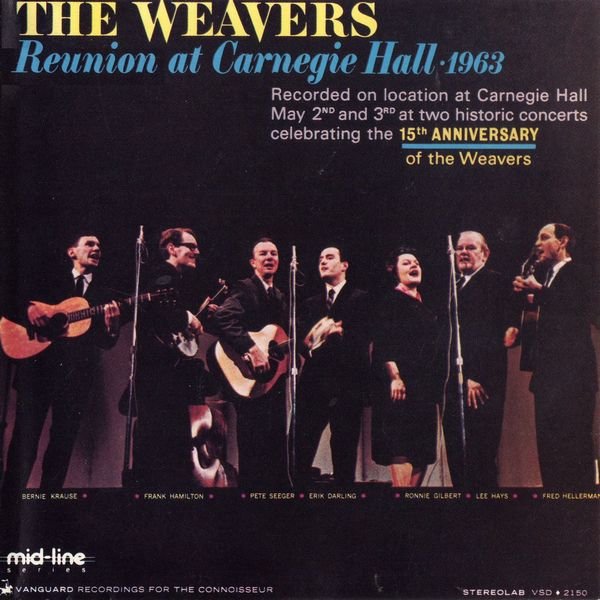 |
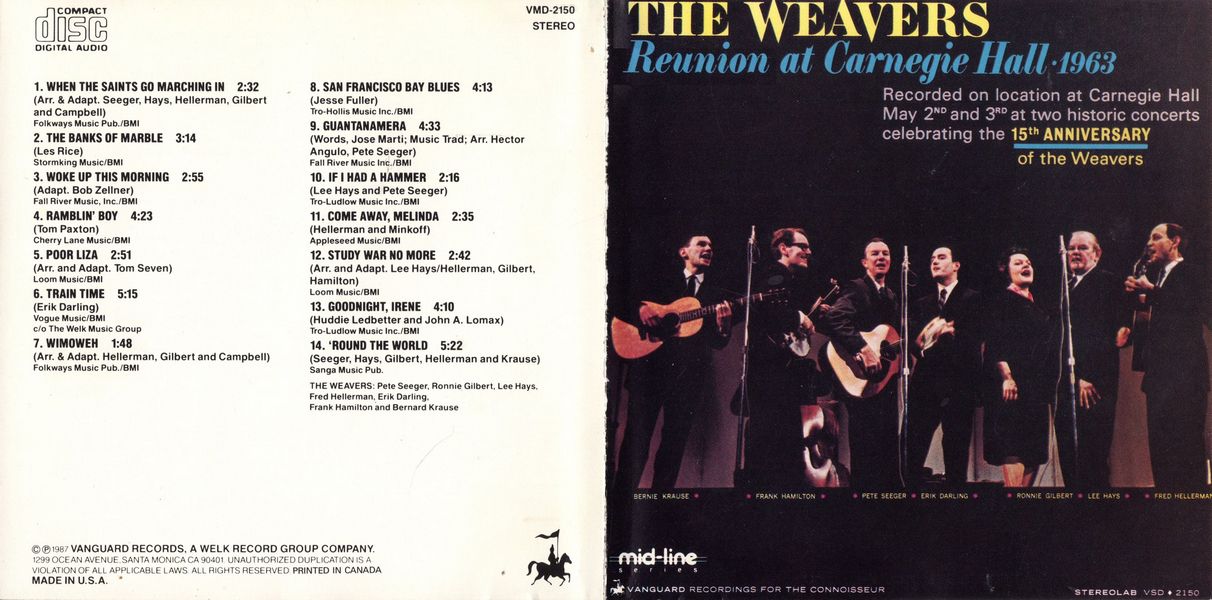
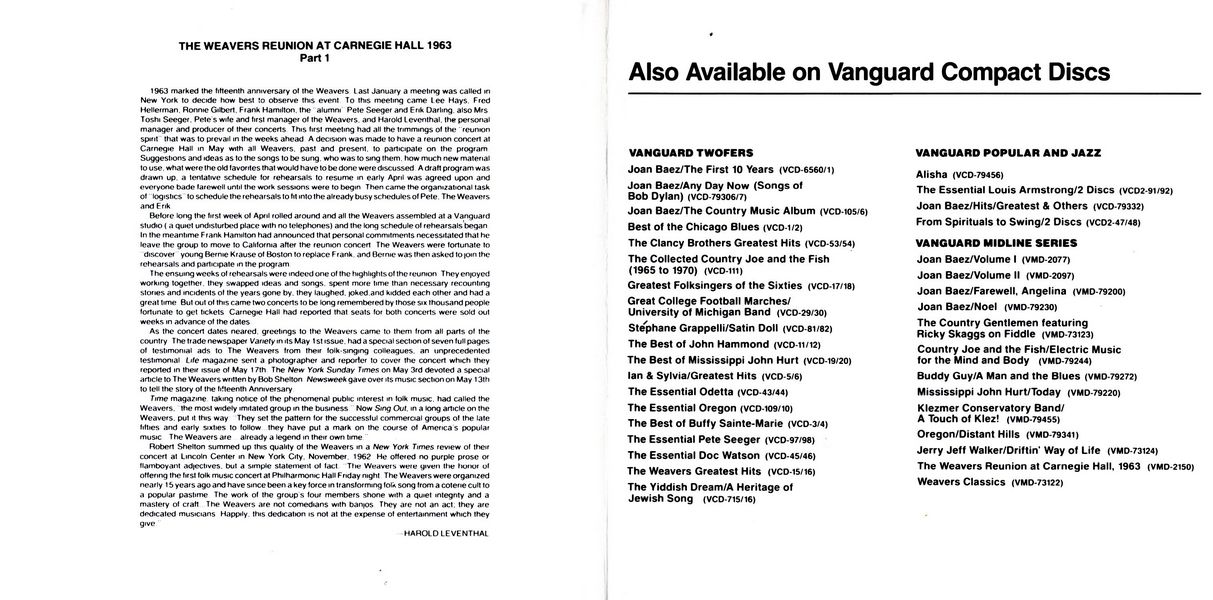 |
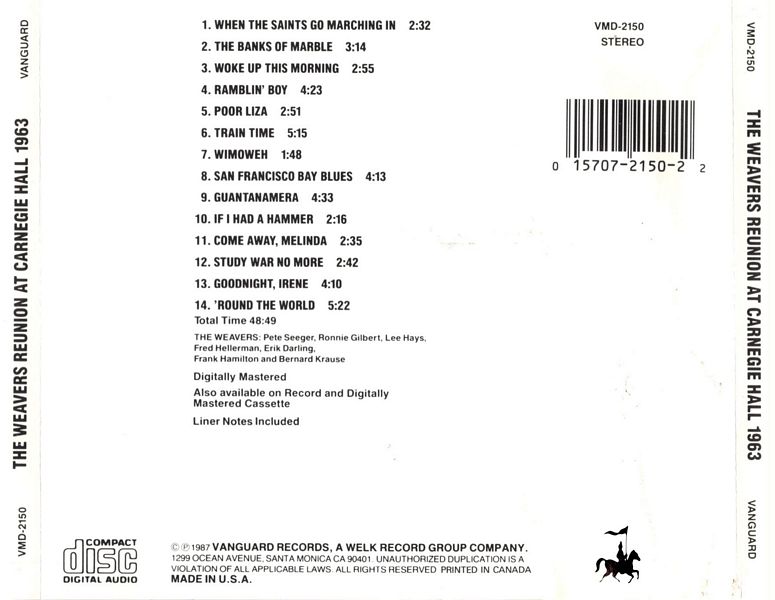
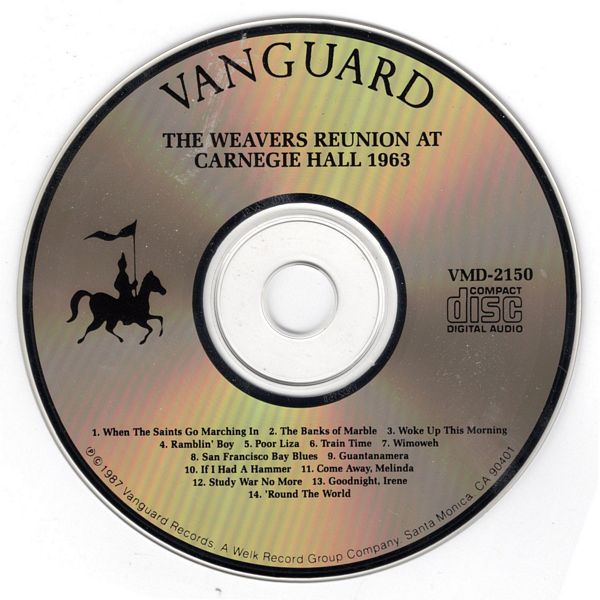
|
Sleeve Notes
The Weavers Reunion At Carnegie Hall 1963 — Part 1
1963 marked the fifteenth anniversary of the Weavers. Last January a meeting was called in New York to decide how best to observe this event. To this meeting came Lee Hays, Fred Hellerman, Ronnie Gilbert, Frank Hamilton, the "alumni" Pete Seeger and Erik Darling, also Mrs. Toshi Seeger, Pete's wife and first manager of the Weavers, and Harold Leventhal, the personal manager and producer of their concerts. This first meeting had all the trimmings of the "reunion spirit" that was to prevail in the weeks ahead. A decision was made to have a reunion concert at Carnegie Hall in May with all Weavers, past and present, to participate on the program. Suggestions and ideas as to the songs to be sung, who was to sing them, how much new material to use, what were the old favorites that would have to be done were discussed. A draft program was drawn up, a tentative schedule for rehearsals to resume in early April was agreed upon and everyone bade farewell until the work sessions were to begin. Then came the organizational task of "logistics" to schedule the rehearsals to fit into the already busy schedules of Pete, The Weavers and Erik.
Before long the first week of April rolled around and all the Weavers assembled at a Vanguard studio (a quiet undisturbed place with no telephones) and the long schedule of rehearsals began. In the meantime Frank Hamilton had announced that personal commitments necessitated that he leave the group to move to California after the reunion concert. The Weavers were fortunate to "discover" young Bernie Krause of Boston to replace Frank, and Bernie was then asked to join the rehearsals and participate in the program.
The ensuing weeks of rehearsals were indeed one of the highlights of the reunion. They enjoyed working together, they swapped ideas and songs, spent more time than necessary recounting stones and incidents of the years gone by, they laughed, joked, and kidded each other and had a great time. But out of this came two concerts to be long remembered by those six thousand people fortunate to get tickets. Carnegie Hall had reported that seats for both concerts were sold out weeks in advance of the dates.
As the concert dates neared, greetings to the Weavers came to them from all parts of the country. The trade newspaper Variety in its May 1st issue, had a special section of seven full pages of testimonial ads to The Weavers from their folk-singing colleagues, an unprecedented testimonial. Life magazine sent a photographer and reporter to cover the concert which they reported in their issue of May 17th. The New York Sunday Times on May 3rd devoted a special article to The Weavers written by Bob Shelton. Newsweek gave over its music section on May 13th to tell the story of the fifteenth Anniversary.
Time magazine, taking notice of the phenomenal public interest in folk music, had called the Weavers, "the most widely imitated group in the business." Now Sing Out, in a long article on the Weavers, put it this way: "They set the pattern for the successful commercial groups of the late fifties and early sixties to follow … they have put a mark on the course of America's popular music … The Weavers are already a legend in their own time."
Robert Shelton summed up this quality of the Weavers in a New York Times review of their concert at Lincoln Center in New York City, November, 1962. He offered no purple prose or flamboyant adjectives, but a simple statement of fact. "The Weavers were given the honor of offering the first folk music concert at Philharmonic Hall Friday night. The Weavers were organized nearly 15 years ago and have since been a key force in transforming folk song from a coterie cult to a popular pastime. The work of the group's four members shone with a quiet integrity and a mastery of craft. The Weavers are not comedians with banjos. They are not an act; they are dedicated musicians. Happily, this dedication is not at the expense of entertainment which they give."
Harold Leventhal